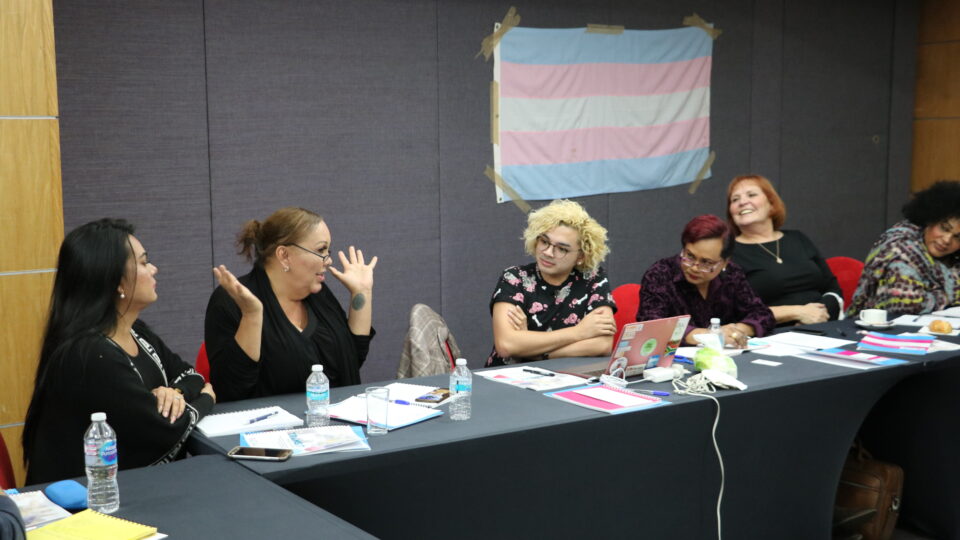Overview
In September 2019, GATE began a collaboration with IRGT to develop a community-focused guide to the UNFPA 2016 publication Implementing Comprehensive HIV and STI Programmes for Transgender People (informally known as TRANSIT) after both organizations had received feedback from community members that the content of the original document was not accessible or easy to disseminate in local communities. The TRANSIT Smart Guide was completed in December 2019, and a subsequent workshop was organized to provide an opportunity for validation, community recommendations for improvement, and dissemination planning.
This workshop, held in Mexico City from 25-26 January 2020, brought together 17 trans leaders from 15 countries. The event provided the chance to validate the TRANSIT Smart Guide with community members and to identify opportunities for dissemination, implementation, knowledge exchange and collaboration between regions.
Case Studies
JoAnne Keatley, IRGT Chair
Something that I’ve been really pleased with, partnering with GATE, is that we have been able to leverage resources, the limited resources that each of our organizations brings to the table, and we’ve been able to accomplish more with those limited resources than we would be able to accomplish by ourselves, supporting one another in the process.
JoAnne Keatley
Paty Betancourt, Founder of REDLACTRANS
I was fascinated throughout the GATE and IRGT TRANSIT Smart Guide workshop. The most important lesson I learned was how to share my knowledge of implementing this Guide with other trans community leaders. This Guide is an essential tool for doing advocacy work with governments, public services and health systems.
Paty Betancourt
Manisha Dhakal, Executive Director of Blue Diamond Society, Nepal
What I have learned from this project and this entire workshop is community empowerment. If we want to bring changes then community empowerment is really, really important. Most of the time what we implemented before in our service delivery HIV program is only for testing and prevention efforts. But if we want to bring the community people into our services, then we need to design the program for the comprehensive approach of the holistic services.
Manisha Dkahal
Daniyar Orsekov, Board Member of Kyrgyz Indigo, Kyrgyzstan
During the GATE and IRGT workshop, I learned about the TRANSIT Smart Guide, how it was created by the community, and how it went through UN and WHO approval processes. I also gained a lot of insight into different country contexts regarding trans communities through meeting other trans activist at the workshop.
Daniyar Orsekov
Daniel Gonzalez, Co-Director of Research at GAAT Foundation, Colombia
Being a trans man in Colombia is supremely difficult. One of the highest reasons why people stop going to the doctor is because the health system discriminates against us. No one knows what goes through our own bodies better than ourselves, and that expertise is important for your data, for studies, for academia. It is necessary that you build with our hands. It is only a matter of removing the blindfold that you have have over your eyes, and realize the world goes beyond what you know, and we are there in that world, and that without us you simply cannot build any valid knowledge.
Daniel Gonzalez
Millie Milton, President of Guyana Trans United
My involvement in GATE’s CRG-SI project enabled me to build upon my desire to change the way society thinks about trans people by increasing my capacity and helping me to find ways to heighten my activism for the trans community.
Millie Milton





